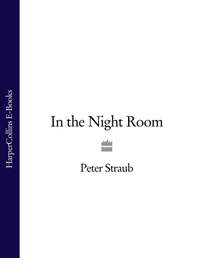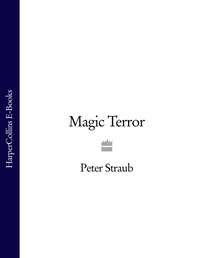
Полная версия
Mr. X
Three days a week, she clerked at the pawnshop owned by her stepfather, Toby Kraft, who in spite of universal Dunstan disapproval years before had married Star’s mother. Toby Kraft had reinforced the family’s distrust by moving his bride into the apartment above his shop instead of submitting to Cherry Street. Despite their general dislike, he had participated in family gatherings for the rest of Queenie’s life and continued to do so after her death, the occasion for Star’s most recent return to Edgerton and my release from the latest set of foster parents. It did not occur to me until much later that the death of her mother was behind Star’s new ease. She must have experienced an elemental relief at the lifting of Queenie’s everlasting scorn. Her second job involved what she described as ‘modeling’ a couple of nights each week at Albertus. I did not grasp at the time that this meant posing nude for students in a life-drawing class.
Our orderly existence permitted me to ask my question. I waited until we were alone in Aunt Nettie’s kitchen, me drying the dishes she washed while Nettie gabbed on the porch rocker with Aunt May, and Uncle Clark and Uncle James watched a cop show on television. Star handed me a dish, and I rubbed the cloth over its glistening surface while she described a jazz concert she had seen in the Albertus auditorium a month after my conception.
‘At first, I wasn’t even sure I liked that group. It was a quartet from the West Coast, and I was never all that crazy about West Coast jazz. Then this alto player who looked like a stork pushed himself off the curve of the piano and stuck his horn in his mouth and started playing “These Foolish Things.”’ The memory still had the power to make her gasp. ‘And, oh, Neddie, it was like going to some new place you’d never heard about, but where you felt at home right away. He just touched that melody for a second before he lifted off and began climbing and climbing, and everything he played linked up, one step after another, like a story. Neddie! It was like hearing the whole world open up in front of me. It was like going to heaven. If I could sing the way that man played alto, Neddie, I’d stop time forever and just keep on singing.’
She was trying to communicate the importance of music in her life, but at the time I had no idea of the impact these words would have on me. It would certainly never have occurred to me that one day I would find it possible to witness the rapture she was describing. All of that was far ahead of me, and I thought she was trying to keep me from asking my question.
When she stopped talking, I said, ‘I really want to know something.’
She turned her head to smile at me, warmed by the memory of the music and expecting a question about it. Then the smile clicked off, and her hands stopped moving in the water. She already knew that my question had nothing to do with an alto saxophone solo on ‘These Foolish Things.’
‘Ask away.’ She plucked a dish out of the foam with self-conscious gravity.
I knew that whatever she was going to tell me would be a lie, and that I would believe it for as long as I could. ‘Who’s my dad? He isn’t Uncle Clark, is he?’
She glanced over her shoulder, shook her head, and smiled down at me. ‘No, honey, he sure isn’t. If Uncle Clark was your daddy, Aunt Nettie would be your mommy, and wouldn’t you be in a pickle?’
‘But who is he? What happened to him?’
She seemed to concentrate on scrubbing the plate in her hands. I know now that she sat next to my father during the concert she had been talking about. ‘Your father went into the army after we got married. Because he was so smart and so strong, it wasn’t long before they made him an officer.’
‘He was an army man?’
‘One of the best army men ever,’ she said, locking into place both my disbelief and the need to deny it. ‘They sent him places ordinary soldiers couldn’t go. He wasn’t allowed to tell me about them. When you’re on a Top Secret mission, you can’t talk about it.’ She passed the plate beneath a stream of water and handed it to me. ‘That’s what your father was doing when he died. He was out on a secret mission. All they could tell me was that he died like a hero. And he’s buried in a special hero’s grave, way up on a mountainside on the other side of the world, overlooking the sea.’
I could see an American flag on a mountainous promontory far above silvery water and endless waves, marking the grave of that without which I would forever be incomplete.
‘I wasn’t supposed to tell you, but now you’re old enough to keep it to yourself. Nobody else knows what I just told you, except his superior officers.’
We washed and dried the remaining dishes in a charged but companionable silence. I knew that she was in a rush to change clothes and drive to her modeling job, but she stopped and turned around on her way to the kitchen door. ‘I want you to know something else, too, Neddie. Your father isn’t the only thing you have to be proud of. Our family used to be important people here in Edgerton. They took most of it away, but folks here remember, and that’s why we’re different from everyone else. You come from a special family.’
I sat on the living room rug and tried to see what was special in my aunts and uncles. The detectives had solved the weekly murder, and the aunts had come inside to sit on the green davenport and enjoy their favorite program. From my low, sidelong perspective, Nettie and May resembled monuments of Egyptian statuary. Their massive bodies in shapeless print dresses reared up side by side above four hugely stationary legs. In a sleeveless mesh T-shirt, his suspenders clipped to the waistband of tan gabardine trousers, Uncle Clark was canted back in his easy chair, his wide mouth twisted into a sneer. Eyes closed, arms folded over his chest, Uncle James filled the high-backed rocker. A man with wavy blond hair and an aristocratic profile was sawing away at a violin.
‘Mr Florian Zabach has a gift which comes straight from God,’ said Aunt Nettie. ‘I never heard prettier sounds in all my life.’
‘Remember the time we went up to Chicago and saw Eddie South?’ said Uncle Clark.
‘Eddie South brought a beautiful tone out of his fiddle,’ said Aunt May. ‘I have wondered if he might have been one of our category. A number of musicians are, I believe.’
‘Little pitchers,’ Nettie said. ‘Mind what you say.’
Uncle James snorted and stirred, and the other three looked at him until his chin dropped as far as his redwood neck would permit.
‘That tone was why they called Eddie South “The Dark Angel of the Violin,”’ Uncle Clark said. ‘But if Stuff Smith got up there, he’d gobble your Florsheim Swayback down in one bite.’
‘Nettie,’ said Aunt May, ‘I believe Mr Welk is putting on some weight.’
My eyelids sagged, and I pushed myself upright before I fell asleep in the living room, like Uncle James.
My mother woke me up when she let herself into our room. I waited while she took off her clothes, put on her nightshirt, and found her way to bed. I heard her yank up the sheet and wrestle her pillow into shape. She had carried into the room an odor of smoke and beer mingled with fresh air and summer rainfall, and I tried to sort out these traces of her evening’s history as she relaxed into sleep. Her breathing stretched out and slowed down. When I heard it catch in her throat and release itself in what was almost a snore, I crept across and crawled in beside her. Star seemed enormous, a huge female animal still wrapped in the atmosphere of the adventures through which she had passed on her way home. I nestled my back against hers. My body instantly doubled in weight and began to slip toward the center of the earth, where my hero father lay buried. Star shuddered and spoke a single word I trapped in my hands as I plummeted out of consciousness. Rinehart.
4
At the whispery pop of a seam I looked over my shoulder, saw a shadow fleeing down sunny Cherry Street, and fell bang on my bottom in surprise. At least once a week during my childhood and adolescence, this happened the moment my head hit the pillow. My shadow elongated over the white sidewalk and bent sideways to slip around the corner. The terror of an irredeemable loss immobilized me on the warm pavement. I got up, ran to the corner, and saw my shadow floating like a solid substance above the sidewalk ahead. When I pounded forward, the sidewalk tilted like a slide, and the familiar houses and dark porches softened in the heat.
Edgerton was gone.
I ran down a beaten track leading to a narrow river and an arched wooden bridge. The upright shadow scampered on. On the far side of the bridge, a line of stunted trees marked the beginning of a forest. I glimpsed the peaked roof and broken upper windows of an abandoned house above the treetops. My shadow moved up the arch of the bridge, leaned on the curved iron railing, and crossed one foot over the other. It faced me without having turned around.
Like an optical illusion, the mocking shadow receded with every stride I took. When finally I stood on the bridge, the shadow regarded me from fifty feet away and a point well above my head.
‘You seem to be trying to catch me,’ my shadow said.
‘I need you,’ I said.
‘Then you’d better come along.’ The shadow did its trick of switching front and back and moved on.
By the time I reached the top of the arch, the shadow was far down the descending slope. The iron handrails had become slim and delicate, and the planks bent beneath my weight.
The shadow patted the railing. ‘The longer it gets, the thinner it becomes. Like toffee. In the end, it disappears.’
‘Can I get to the other end?’
‘Maybe, if you get into some fancy sliding, use your momentum.’
‘We need each other,’ I said. ‘We’re the same thing.’
‘You are me, and I am you, yes,’ said the shadow. ‘But only in the sense that we each have qualities the other lacks. Unfortunately, your qualities are boring.’
‘Boring?’
‘Dear me, am I doing the right thing? What do other people think of me? Why don’t they like me?’ The shadow flicked its hands in the air, as if to scatter a cloud of gnats. ‘I don’t give a damn what people think of me.’
‘You’re a shadow,’ I said. ‘People don’t think about you at all.’
‘Then why care about getting me back?’
I had no answer for that.
‘You won’t even be able to go out by yourself at night for another six or seven years. When do we have our first cigarette? Our first drink? When do we get to have actual sex?’ He shook his head in disgust. ‘I want darkness, I want night. I want to see a big steak in front of me and a glass of whiskey beside the plate. I want cards in my hand and a cigar in my mouth and a little grown-up fun, and, kid, with you, it’s going to be too much work to get them.’
‘Without me, you can’t get them at all,’ I said.
‘On the contrary. Without you, I can do whatever I like. If you catch me, I have to come back, but I won’t be easy to catch, and you’ll be in considerable danger during the pursuit.’
‘What kind of danger?’ I asked.
‘That kind, for one.’ He swept his arm toward the forest. Imaginary blue fire flickered from branch to branch. My heart went cold and my mind became a stone.
5
Four years before the dream I just described started wrecking my sleep two or three nights every month, my aunts and uncles had seen conclusive proof of their doubts that Star could produce an undamaged child. I hope they were gratified. I was not. I had been looking forward to my third birthday.
I can remember the balloons bobbing on the clotheslines and the big ladder between the house and the picnic table, and I know what I was wearing. Among the few of my mother’s possessions I retain is a photograph of me in the striped T-shirt and new dungarees given me by Queenie. I have to tell the truth: I was an angelic child. If I saw a kid like that, I’d tuck a dollar into his hand for sheer good luck. Mine, I mean, not his. But when I look at his cherub face I have to wonder what this little smiling boy is concealing.
That is:
I wonder if he has begun to feel a mild, increasing tingle like an electric current pass up his arms and into his chest. I wonder if his mouth feels dry, if the colors striped across his shirt and the vibrant reds and yellows of the balloons have begun to glow. That angelic boy in his birthday-boy clothes may have felt the tightening of the screws at the heart of the world, but he has no idea of the misery speeding toward him. He has not yet seen the first sly tongues of the blue fire.
The aunts and uncles, my grandmother, and my mother must have spent much of the morning preparing the scene. Someone had blown up the balloons and used the ladder to fasten them to the clotheslines. A paper tablecloth printed with birthday cakes and candles had been stretched out across the picnic table and arrayed with paper plates, plastic cups, and cutlery. (Now that I know how they managed to get all this stuff, I pity the owner of the local five-and-dime.) Jugs of fresh lemonade and cherry Kool-Aid and the containers of food held down the tablecloth. Aunt Nettie had made a tuna casserole, Aunt May brought over a tray of fried chicken, and Queenie had baked her legendary sweet-potato pie. Reclusive Uncle Clarence and Aunt Joy had consented to emerge from their house across the street, a building so forbidding and funny smelling I dreaded entering it. Clarence brought along his banjo. Joy contributed a loaf of her black-olive bread. Star made lime Jell-O and the birthday cake, angel food with chocolate frosting. I can remember Toby Kraft, his face so white he reminded me of Casper the Friendly Ghost, strutting around the table and patting people on the back.
They must have gossiped, they must have told stories and teased one another as they dug into the fried chicken. I can’t remember that any more than I can remember the actual disaster itself. What I can remember – the most commanding mental photograph I retain from my third birthday – is an image so dissonant that it sank indelibly into me.
It begins with a sudden awareness of the warmth and color of the light, as if I had never before really noticed how this rich, vibrant substance streamed from above to coat the world like a liquid. I saw the brightness gather in a shining skin on the backs of my mother’s hands. Then the earth opened beneath me, and I plummeted downward and away from the picnic table, too startled to be frightened. I came to rest and found myself in a large, untidy room. Books covered a table and stood in piles on the floor. In the distance, an embittered voice ranted about smoke and gold. My eyes fastened on the mantel, where a fern drooped beside a fox stepping delicately toward the edge of a glass dome. The weights of a brass clock swung this way – that way on the other side of the fox’s confinement. I had been pushed back: I was in the museum of the past.
It ended so quickly that I did not have time to react. In the space between two halves of a second I had traveled at enormous speed back to my chair at the picnic table, restored to the present. A fraction of a beat ahead of the moment when I had seen the sunlight glowing on my mother’s hands, Uncle James was still telling the same joke to Uncle Clark, Aunt May still smiling at compliments to her fried chicken – I’m inventing these details to suggest the normality of the scene, but all I remember is what I just described. By then, the sensations in my body would have built to an almost unbearable pitch.
‘You scrambled off the picnic bench,’ Star told me, not once but many times, retelling this story to help herself deal with it. ‘I asked if anything was wrong, but you just put your hands over your eyes and started running. Toby tried to grab you, but you scooted past him and ran right into that ladder. Down it went, I don’t know how a little thing like you had the strength, the ladder fell smash into the table, right next to my mother. Food went flying straight up in the air. Clarence was pouring Kool-Aid into his cup, and the jug got away from him and landed in the cake.
‘After you got past the top of the table, you fell down flat and stiffened up like a board. The spasms hit you so hard you bounced off the ground. Foam was coming out of your mouth. I heard Uncle Clark say something about rabies, and I clouted him on the side of his head without even breaking stride. Some of those people were so busy mopping at themselves and taking care of Momma, they didn’t know what was happening to you! I swear, I was so scared I thought I was going to faint. When I got my arms around you, I couldn’t even hold you still.
‘Then you went limp. I picked you up and put you to bed. After a while, Nettie and May came in to feel your forehead and tell me about everybody they ever knew who had fits. I put up with it as long as I could, and then I shooed them out.
‘The doctor said it could have been anything. Too much excitement. Dehydration. He picked you up and put you on his lap and said, “Neddie, your mommy says you put your hands over your eyes before all the trouble started. Was that because you saw something you didn’t like?”’
What age was I, when she slipped that in? Eight?
‘Now, that struck me, because I was wondering the same thing. You were too young to answer him, and besides, I don’t think you remembered anything that happened. But, honey, you covered your eyes the next year, too, and you did it again on your fifth birthday. Did you see something that made you unhappy?’
I never told Star what happened during my ‘attacks.’ For a long time, I would not have known how to describe those visions, and later on I was afraid of sounding crazy. It was bad enough that other people saw me thrashing on the ground – it would have been worse if they had known what was going on inside.
Even now, writing about this is like trying to reconstruct a half-destroyed mosaic. Many patterns and images seem possible, and even after you think you have identified the design, you cannot be certain that you have not merely imposed it. From the border, men and women attend or not to what is represented in the missing section. Some smile, some appear to be frozen in wonderment or shock. Others look away: have they chosen to ignore the enigmatic event or not yet noticed it?
6
The internal story of my third birthday cannot ever be reconstructed. The people arranged around its borders, my aunts and uncles, my grandmother, Toby Kraft, are staring at a blankness. My mother holds me in her arms, but she has averted her head.
The path to wisdom leads downward, and anyone who decides to take it had better buckle on armor, remember to bring a sword, and get used to the idea that when and if he gets back everyone he talks to is going to think he’s a phony.
7
It would have looked like this:
Through walls of blue fire I follow a being into the ordinary world, and we are standing before a house with a basketball hoop hung over the garage door and a bicycle canted over its kickstand at the edge of the driveway. The lighted windows glow a luminous turquoise, and the dark windows shine blue-black. There is a number on the front door and I can see a street sign, but since I am three and cannot read, these things are symbols without meanings. At once completely unknown and deeply familiar, the being beside me frightens me like Aunt Nettie’s stories of the Bogeyman. The brim of his black hat shades his face. His coat nearly touches the ground.
In my terror I turn away and see the dark shapes of mountains rising like animals into the sky. Blue starlight defines the jagged ridges and gleams from vertical snowfields. The air smells like Christmas trees.
The being moves forward, and a pressure like a tide urges me along in his wake. He turns to the front door and moves onto a welcome mat. Gleeful flames swarm around him. He reaches into his coat with one hand and pushes the doorbell with the other. He doesn’t have to use the bell, he could melt through the door if he felt like it, but ringing the bell amuses him. Then, as if because of my insight, I am within the being and looking horrified through his eyes. I see a blue-white hand pull a knife from the depths of the black coat. Flame moves along the blade. The unopened door is a blue tissue.
On the other side of the shimmering tissue a heavyset man in jeans and a sweatshirt approaches. His pulled-down mouth tells me that he is annoyed. He engulfs the doorknob in his free hand, and as he turns it steps forward to block the doorway. This takes place in seconds. When the man opens the door and thrusts himself forward, I try to wrench free of the being. A force clamps down to hold me still. Before me, the man’s eyes flare and darken. I try to scream, but my mouth is not mine and will not obey. We follow the man through the door, and the blue fire surges in with us. For a second that is like a dance the man’s right leg glides back and our left leg glides forward and we move together in unison. He bends to get away, and we bend with him. His teeth shine milky blue.
The knife slides into the band of flesh between the bottom of his sweatshirt and the waist of his jeans. The man breaks the dance by going still. We lean into him so closely that our chin rubs his cheek. He makes a sound and puts his hands on our shoulders and straightens up, and then we are back in the dance. We move behind him and pull up on the knife. His knees dip. Black in the trembling blue light, a sheet of blood cascades over his jeans. A silver rope emerges. Another rope slides out. I feel a relaxation around me and break free.
Then I am standing behind the being, and I can do nothing but witness what I cannot understand.
The man lowers his hands to the ropes and holds them as if making an offering. Slowly, he tries to move the ropes back inside his body.
The being says, ‘Mr Anscombe, I presume?’ His voice tells me that this, too, amuses him.
Down the side of the room, blue flames swarm across the wall and form a glowing transparency through which I can see a woman in a nightdress sitting on a bed with a little girl on her lap. She holds a book but has stopped reading to look at the place in the wall where the door must be.
She can’t see how the man is trying to stay on his feet, stepping a little bit forward, then a little bit back, or how his knees sag until he sinks all the way to the floor, all the time staring at the fat loops falling out of his hands. The being leans down, sets the knife hard against the side of the man’s neck and jerks it across. Black fluid streams over the sweatshirt, and in the center of the stream a bump rises and falls, bump bump bump. The man tilts over his knees and keeps on tilting with the same amazing slowness until his forehead meets the carpet. The being steps back. Beneath the shadow of his hat, a blank pane of darkness ends in a strip of jaw.
I understand: He is Mr X.
Luxuriantly, Mr X turns to gaze through the blue veils at the woman and the little girl on the side of the bed.
The dying man makes an airy sound. The woman pats her little girl’s head.
In delight, the being moves forward, and the veils reshape themselves into a bright tunnel. Without warning, the wind presses me forward in his wake. A mild, almost weightless resistance like that of a spiderweb yields instantly as I pass through the invisible wall. On all sides, the blue tunnel hums like electricity. Mr X strides ahead, and he, too, hums with his own electricity, which is joy. His next stride carries him into the bedroom, and although his body conceals the woman and child from me I hear a woman’s gasp. The child begins whimpering. They have seen a man in a black coat and hat walk straight through the bedroom wall. The woman scrambles across the bed, and I see bare legs flashing blue-white.
Clamping the little girl to her chest, the woman spins off the far side of the bed and hits the dresser. They have shiny, dark brown, just-washed hair and immense dark eyes. I step back, and the little girl’s eyes glance in my direction, more as if looking for than at me. When I try to retreat into the tunnel, the pressure slides against my back.








